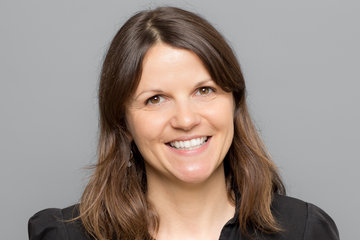Two Max Planck trainee awards for Freiburg
MPI-IE trainees Sophia Bares and Jule Friehs receive awards by the Max Planck Society
The Max Planck Society (MPG) offers traineeships in more than 30 different technical and non-technical trades. Sophia Bares and Jule Friehs have completed one of them very successfully. Accordingly, the biology laboratory assistants from the Max Planck Institute for Immunobiology and Epigenetics in Freiburg (MPI-IE) have now been awarded the 2019 MPG Trainee Prize.

Once a year, the MPG honors its trainees and training centers for outstanding achievements, particularly great commitment, and above-average diligence by awarding the trainee prize. This year, the Max Planck Institute of Immunobiology and Epigenetics in Freiburg (MPI-IE) was awarded two prizes.
Jule Friehs (20) and Sophia Bares (22) received each the trainee prize 2019 that comes with a monetary sum of 750 euros as recognition. Both successfully completed their vocational training as biology laboratory assistants (“Biologielaborantin”) at the institute. On 29 August 2019, Thomas Boehm, Managing Director of the MPI-IE, presented the certificates on behalf of the MPG President and in the presence of Herbert Holz, Head of Training for laboratory occupations (Fig. 1).
Dual training between the lab bench and the school bench
After graduating from high school, both awardees decided to join the MPI’s dual training program. “After thirteen years in school, I wanted to work practically as quickly as possible. Biology was the right thing for me, and the job description of a biology laboratory assistant sounded incredibly exciting. Moreover, it was the only one in this biological-chemical field at this time that was offered as a dual training program,” said Sophia Bares. Dual training at the MPI means that the trainees start directly in the laboratory and receive practical experience in the research groups under the guidance of the training supervisors. The daily laboratory routine is combined with schooling at a vocational school. In the case of the MPI, the theoretical basics are taught en bloc in regular teaching units at the Carl-Engler-Schule in Karlsruhe.
Via rotation in up to five laboratories
One of the strengths of the training program at the MPI is the rotation system. “The trainees change laboratories every six months. During their three-year training, they stay in up to five different research groups. This way, they not only learn a board variety of experimental techniques but also come into contact with different model organisms,” said Herbert Holz, Head of Training at the institute. The MPI in Freiburg is a research institute in basic biomedical research that uses amongst others mice, zebrafish, and drosophila.
For Jule Friehs, the rotation system has another advantage: “Of course, during the course of this training, there was always the opportunity to learn new techniques such as PCR and Western blots or to work with complex measuring instruments, depending on the research group. But it was also exciting to integrate me into new groups again and again. Large laboratories with twenty or more researchers from all over the world function quite differently compared to smaller junior research groups. That was an important experience,” said Jule Friehs.
This diversity of the MPI training program not only strengthens autonomy. It further drives the personal development of each trainee, which the MPG explicitly honors with the Trainee Award. For the two prize winners in 2019, the future is now very different. After the successful final exams, Jule plans to travel. Sophia is currently working in the laboratory of Max Planck group leader Ritwick Sawarkar.
The Trainee Prize
Since 2007, the MPG Trainee Prize has been awarded annually to up to twenty trainees in the 84 Max Planck Institutes throughout Germany. Already in 2014 and 2017, the MPI-IE trainees Laura Kramps and Theresa Cimentepe received the Trainee Prize by the MPG. In addition to doctoral training in the scientific field (IMPRS-IEM), the MPI-IE also offers four training occupations. These range from office management, animal care (research and clinic), IT for systems integration to biology laboratory assistants.
Currently, two training positions for biology laboratory assistants (Ausbildung zum/zur Biologielaborant*in) are available for the 2020 training year until 30 September 2019. More information can be found at www.ie-freiburg.mpg.de/karriere.












